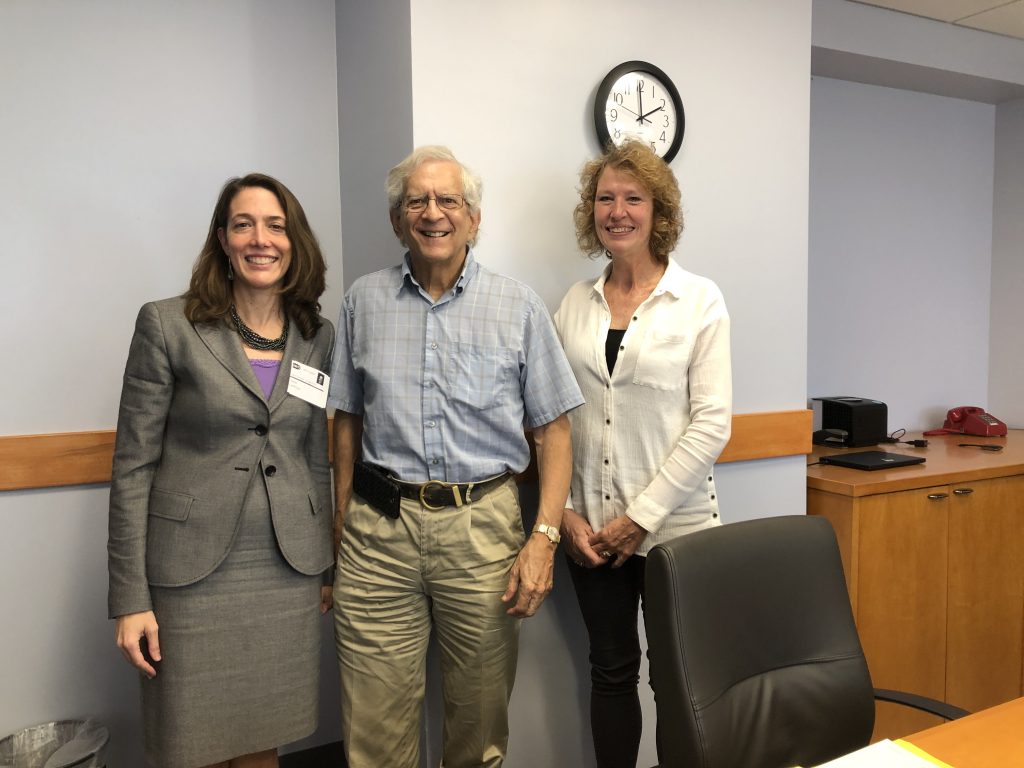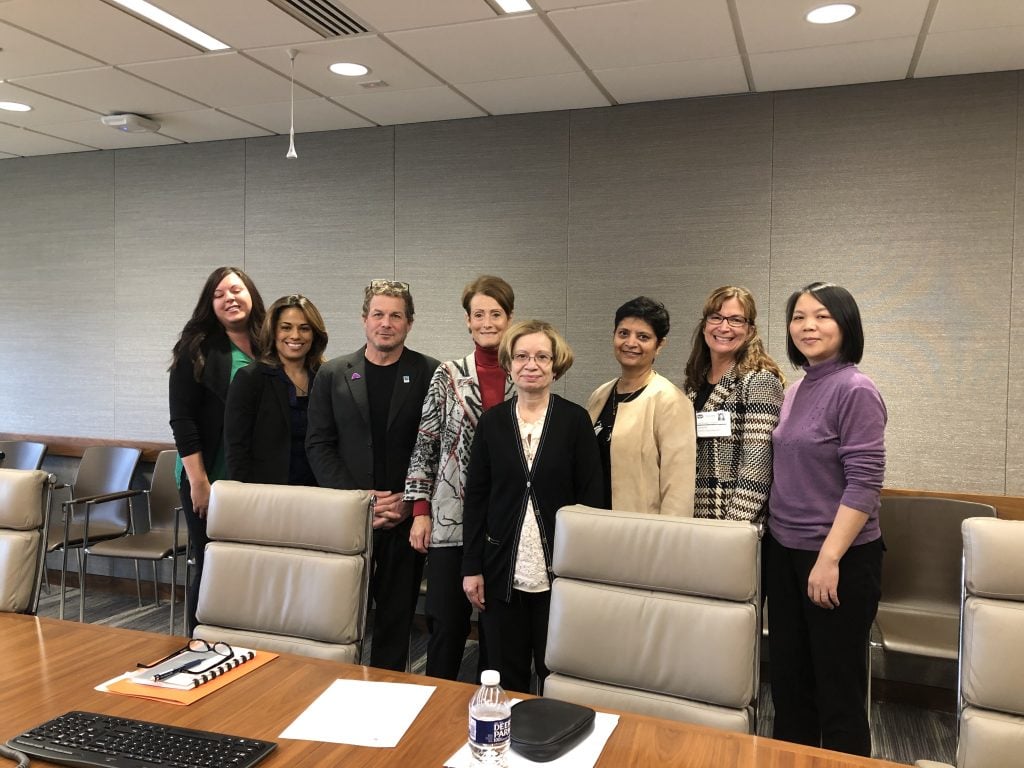During November, the Endocrine Society conducted meetings with leadership at the National Institutes of Health to discuss research goals and other opportunities to partner with the institutes to advance the field.
Anne Cappola, MD, ScM, and Holly Brown-Borg, PhD, met with Richard Hodes, MD, director of the National Institute on Aging (NIA); and Jennifer Richer, PhD, and Endocrine Society president-elect Gary Hammer, MD, met with Dinah Singer, PhD, deputy director for scientific strategy and development at the National Cancer Institute (NCI). Hodes and Singer were joined by several members of their team at NIA and NCI, respectively.

During the meeting with the NIA, Hodes provided an update on the NIA budget and outlook, and shared information about several events, including a recently concluded summit on geroscience. Hodes and his team expressed interest in our long-term agenda for both basic and clinical research and they were enthusiastic about the opportunity to hear more about our priorities in several specific areas such as lipids and aging, and the use of statins in older adults. Participants also discussed opportunities to convene meetings and workshops at ENDO to discuss these and other emerging aging-related research topics.
We always seek opportunities to ensure that endocrine research is prioritized in funding opportunities and other announcements…and our members will remain engaged on these action items in the coming months to advance our relationship with the institutes in support of our member researchers.
During the meeting with NCI, participants identified a need to motivate trainees to engage in research on endocrine neoplasia, particularly for those areas such as thyroid cancer and rare tumors where NCI is seeing fewer grant applications. They were excited about the Endocrine Society’s FLARE program, and we discussed educational opportunities that would engage FLARE fellows as well as research trainees at the Society more broadly. We also discussed opportunities to advance research at the interface between different institutes and centers at NIH, such as altered insulin signaling in cancer. NCI suggested that the Endocrine Society further advance challenging research areas by engaging with foundations to build collaborative platforms to fund endocrine research.

We always seek opportunities to ensure that endocrine research is prioritized in funding opportunities and other announcements. Several action items were identified during the meetings with NIA and NCI, and our members will remain engaged on these action items in the coming months to advance our relationship with the institutes in support of our member researchers.

